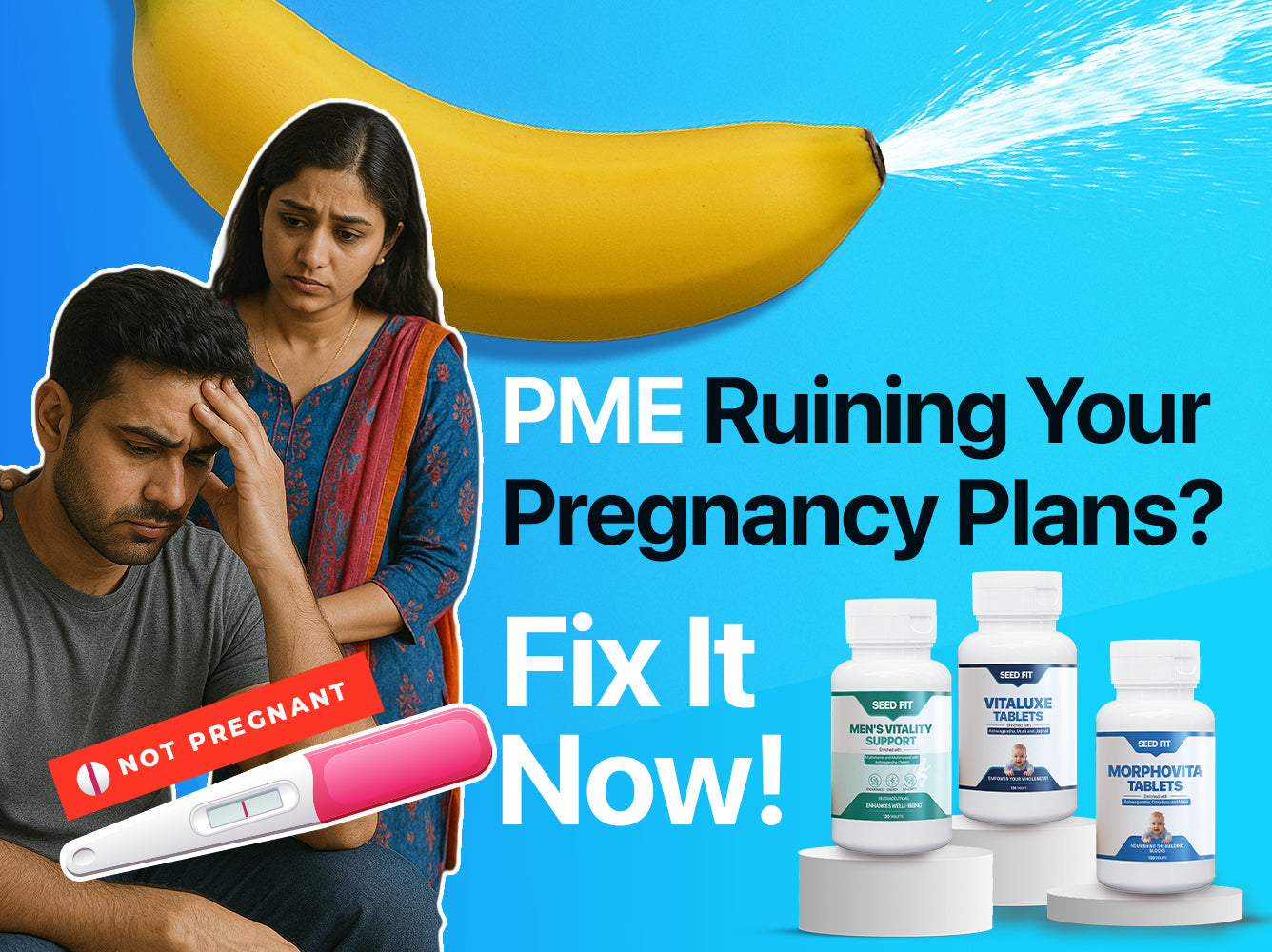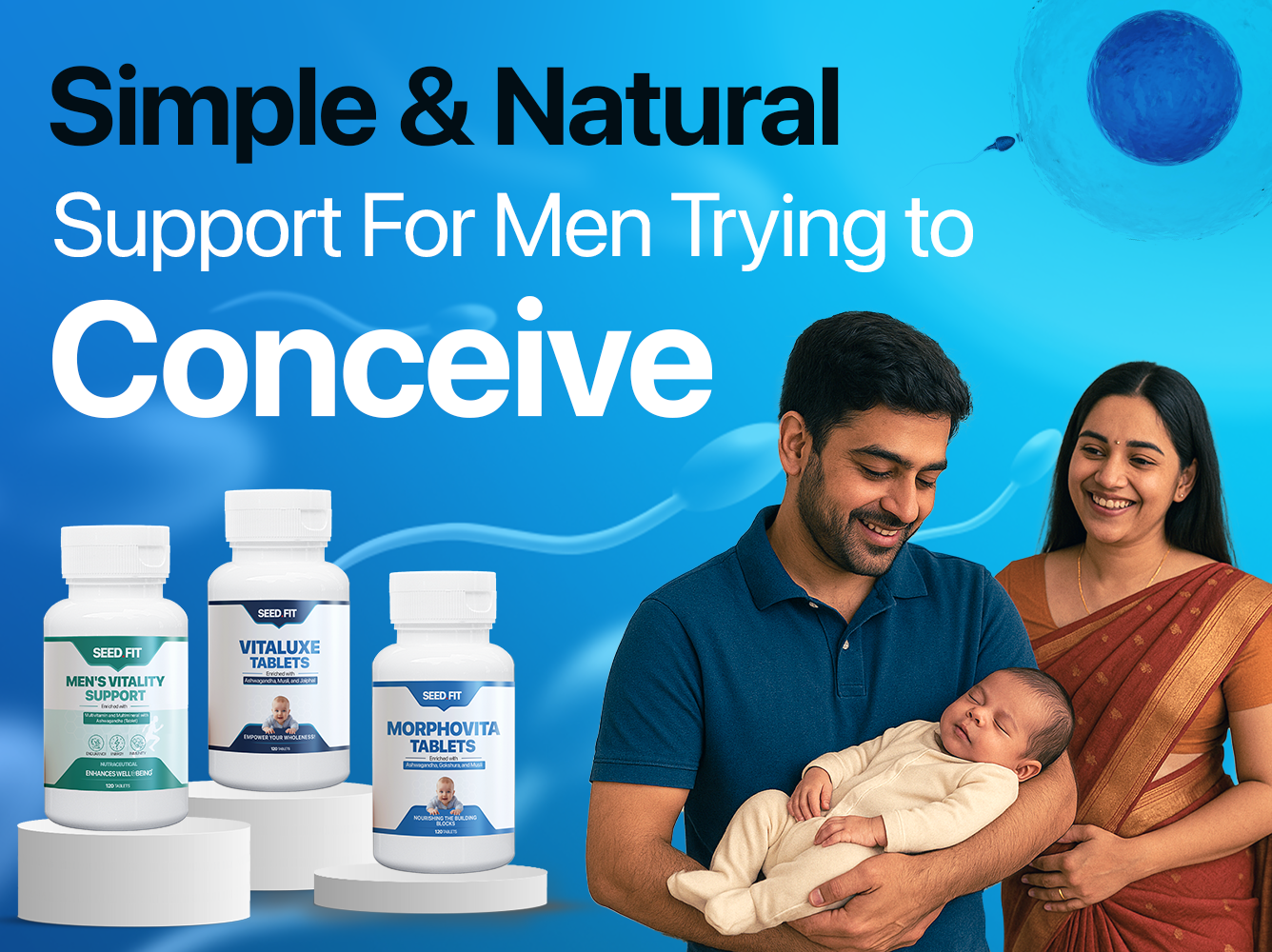Have you ever wondered why IVF feels like the only option — and why it still might fail?
In today’s world, IVF (In-Vitro Fertilization) has become more accessible than ever — especially in India. As a result, many couples see IVF as the first step when trying to get pregnant. But before rushing into IVF, it’s important to understand how it affects the female body, why IVF often fails, and how to increase your chances of conceiving naturally — even after a failed IVF cycle.
IVF Side Effects on the Female Body
Most people don’t realize that IVF has a high failure rate — up to 70% per cycle! Even after investing significant time, money, and emotions, IVF might not lead to pregnancy. That’s why experts recommend seeing IVF as a last resort — not the first line of action.
In fact, more than 60% of couples in India can conceive naturally if they focus on lifestyle changes, nutrition, and natural fertility treatments. Let’s explore what IVF really does to your body and how you can support natural conception after IVF failure.
1. Synthetic Hormones Disrupt Natural Cycles
In an IVF cycle, doctors administer synthetic hormones like FSH (follicle-stimulating hormone) to stimulate the ovaries into producing multiple eggs. While this increases the chances of egg retrieval for IVF, it also disrupts your body’s natural hormonal rhythm and menstrual cycle.
2. Repeated IVF Can Lower Egg Quality
Ovarian overstimulation in multiple IVF cycles may impair the natural egg development process. Over time, this can decrease egg quality, making conception more difficult.
3. IVF Medications Affect the Uterine Lining
Hormonal medications can make the uterine lining too thick or too thin, affecting the implantation of the embryo. A healthy uterine lining is essential for successful pregnancy.
4. Physical & Emotional Stress Impact Fertility
IVF involves:
- Daily hormone injections
- Frequent scans
- Surgical egg retrieval
All of this causes emotional and physical stress. High cortisol (the stress hormone) levels can negatively affect reproductive hormones — reducing your body’s ability to conceive naturally.
5. IVF Can Be Financially and Emotionally Draining
Each IVF cycle can cost ₹1.5 to ₹3 lakhs or more in India. When it fails, it leaves couples feeling emotionally and financially exhausted. This stress can affect relationships and future family planning.
IVF Failed? Don’t Lose Hope — Natural Pregnancy Is Still Possible
Yes, you can get pregnant naturally after a failed IVF cycle. Your body needs time to heal, reset, and regain its hormonal balance.
Step-by-Step Guide to Boost Natural Fertility After IVF Failure
1. Restore Hormonal Balance
IVF can disturb hormones. To boost natural fertility, it’s important to bring your hormones back to balance.
Eat antioxidant-rich foods like:
- Berries
- Almonds and walnuts
- Green tea
Drink coconut water daily in summer for hydration and hormonal health.
Avoid alcohol, cigarettes, and processed foods that disrupt hormones.
Consider Ayurvedic fertility herbs (like Shatavari or Ashwagandha) under professional guidance.
2. Support Uterine Health
A healthy uterus is key to successful implantation and pregnancy. After IVF, it’s important to detox and nourish the uterus.
- Do light exercises like walking or yoga to improve blood flow.
- Drink warm herbal teas that support uterine health.
- Use castor oil packs on your lower abdomen — they are known to support natural detoxification of the uterus.
3. Try Natural Conception for 6 to 12 Months
Before opting for IVF, couples should genuinely try for natural conception for at least 6 to 12 months.
Track your ovulation days, maintain correct timing, and most importantly — consult a fertility expert, not just an IVF clinic that immediately suggests expensive treatments.
4. Get These 3 Things Checked First
If you’ve been trying and not seeing results, make sure you check the following:
1. Are you ovulating?
Tracking ovulation is important to know your fertile window.
2. Are your fallopian tubes open?
Blocked tubes can stop fertilization.
3. What about your partner's sperm health?
Check for sperm count, motility, and morphology. Male factors matter too!
If all three are normal, then there is no need to rush into IVF. Your body can be supported naturally to increase chances of pregnancy.
5. Important Lifestyle Tips to Boost Fertility Naturally
Here are a few more simple but powerful changes that can help your body:
-
Eat whole foods – fruits, vegetables, healthy fats, and good quality protein.
Drink 2-3 litres of water daily. - Practice stress-relieving activities like yoga, deep breathing, or journaling.
- Ensure 7-8 hours of deep sleep every night.
Stay away from plastics and packaged foods – they often contain chemicals that disrupt hormones.
Success Story

After 2 failed IVF cycles, Rhea (32) from Pune conceived naturally within 4 months using Seed.fit’s holistic natural fertility protocol. You can too!
Final Thoughts: Let’s Rethink IVF
IVF is a medical breakthrough, no doubt. But it’s not the only way to become a parent. For many couples, the answer lies in understanding and respecting their natural fertility process.
- Don’t let one failed IVF cycle define your journey.
- Don’t jump into IVF without preparing your body.
- Don’t give up hope — your body has the power to heal and conceive naturally.
Take the First Step — Naturally
Free Fertility Consultation Available at Seed.fit
Sometimes, the best way forward is by taking a step back — and giving your body the time, support, and care it truly deserves.
Start Your Natural Fertility Journey Today.
You are stronger than you think. Your body is wiser than you know. And your journey is still filled with hope.



